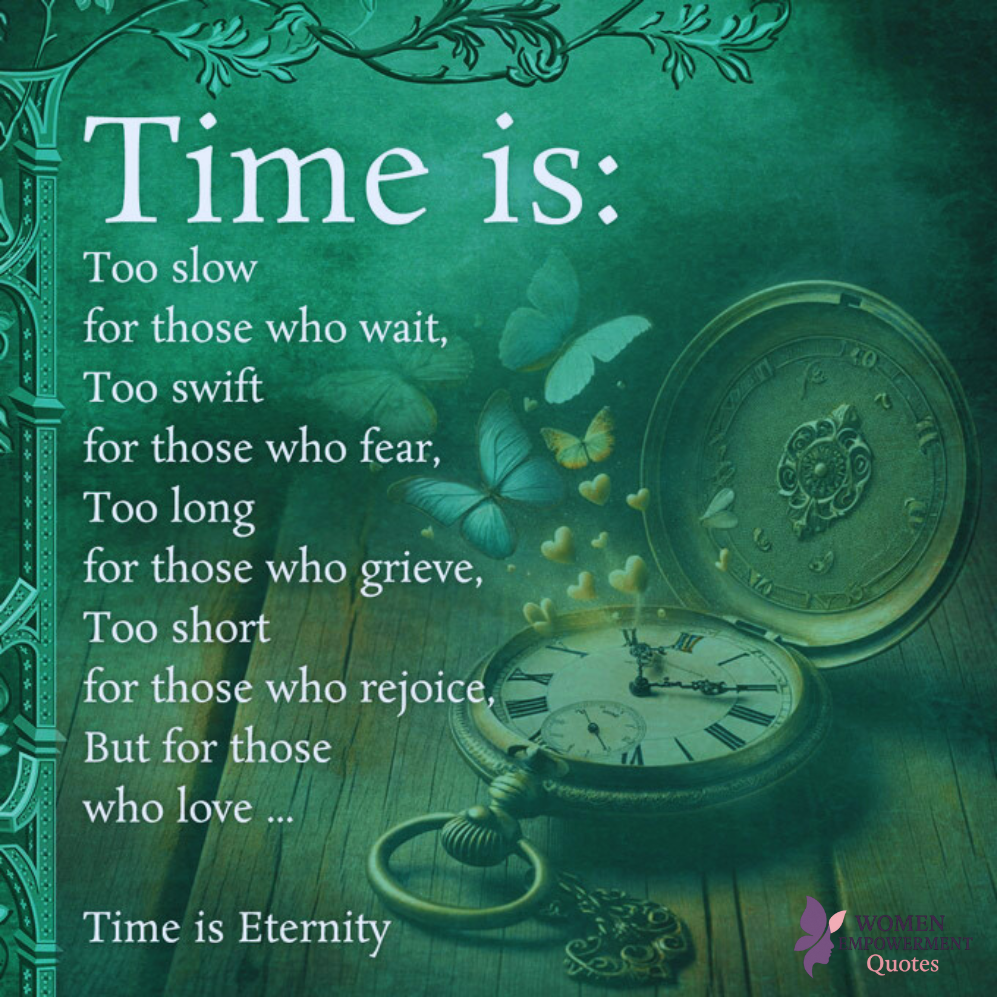
Perception
“Time is too slow for those who wait, Too swift for those who fear, Too long for those who grieve, Too short for those who rejoice, But for those who love, time is eternity.” — Henry Van Dyke
The Subjective Nature of Time
Time—a constant force that governs our lives—is experienced uniquely through the lens of our emotions and circumstances. Van Dyke’s profound quote, originally inscribed on a sundial, captures this duality: while time itself remains unchanging, our perception of it fluctuates with our emotional state.
In moments of anticipation, seconds stretch into minutes. During periods of fear, time races forward, leaving us breathless. When grief envelops us, days seem endless. And in joyful celebration, hours vanish in an instant. Yet when love becomes our foundation, time transcends its physical constraints, touching eternity.
The Science Behind Time Perception
Our experience of time’s elasticity is rooted in how our brains process information. During novel or intense experiences, our minds rapidly absorb sensory input, creating the illusion that time has slowed. The brain, challenged by new stimuli, expands our perception to accommodate this influx of information.
Conversely, routine activities make time feel accelerated. With minimal new data to process, our awareness drifts between past and future, making the present moment feel fleeting. This explains why a day of varied activities seems longer than one filled with monotonous tasks.
Emotions further color our temporal experience:
- Stress and fear trigger heightened alertness, stretching our perception of each moment
- Joy and engagement focus our attention so completely that we lose track of time
- Boredom creates a paradox where time feels simultaneously slow in the moment yet quick in retrospect
Finding Meaning in a Fast-Paced World
In our modern society where efficiency is prized above all, we often reduce time to a resource that must be optimized. We count seconds, schedule minutes, and lament hours “wasted.” Yet Van Dyke’s wisdom invites us to reconsider this perspective.
Perhaps time’s true value lies not in its quantity but in its quality—in how deeply we connect with each moment. When we love deeply, whether that love is directed toward people, pursuits, or purpose, we transcend time’s limitations. In these moments of profound connection, we touch something eternal.
About Henry Van Dyke
The author of this timeless quote led a remarkable life that embodied his own philosophy. Born in 1852 in Pennsylvania, Henry Van Dyke was a Renaissance man whose impact spread across literature, theology, and diplomacy. A Princeton graduate and Presbyterian minister, his sermons were renowned for their poetic quality and spiritual depth.
Van Dyke’s literary contributions include beloved works like “The Other Wise Man,” while his public service culminated in his appointment as U.S. Minister to the Netherlands and Luxembourg during World War I. Throughout his multifaceted career, he consistently championed the transcendent power of love and understanding—themes that echo powerfully in his reflection on time.
Daily Reflection
Take a moment today to notice how your emotional state affects your perception of time. When do minutes seem to stretch endlessly? When do hours fly by unnoticed? And most importantly, what moments of love—whether for people, activities, or ideas—have given you glimpses of eternity?
Timeless Wisdom from Other Voices
- “Time flies over us, but leaves its shadow behind.” — Nathaniel Hawthorne
- “The two most powerful warriors are patience and time.” — Leo Tolstoy
- “Love is, above all, the gift of oneself.” — Jean Anouilh
How does time move for you today? Are you waiting, fearing, grieving, rejoicing—or loving? The clock may tick steadily forward, but your experience of each moment remains uniquely yours.